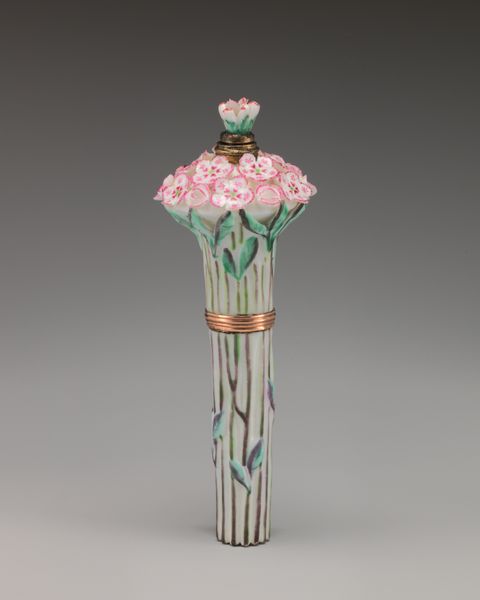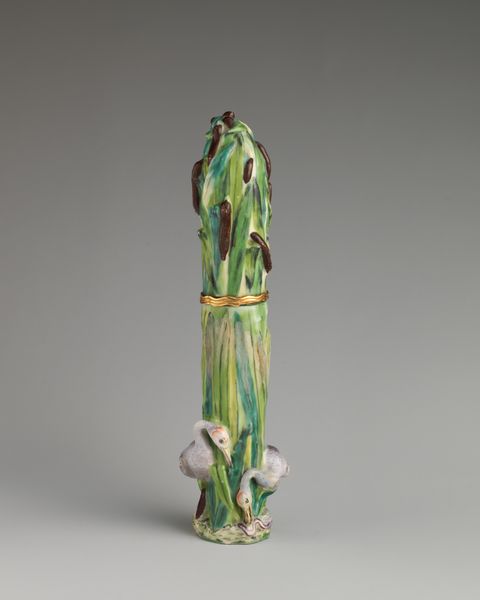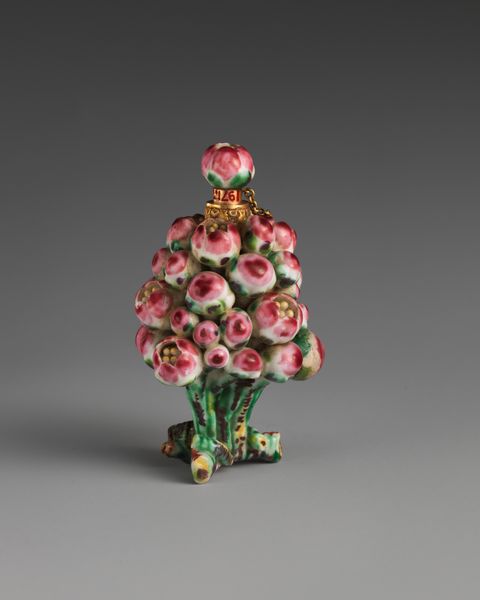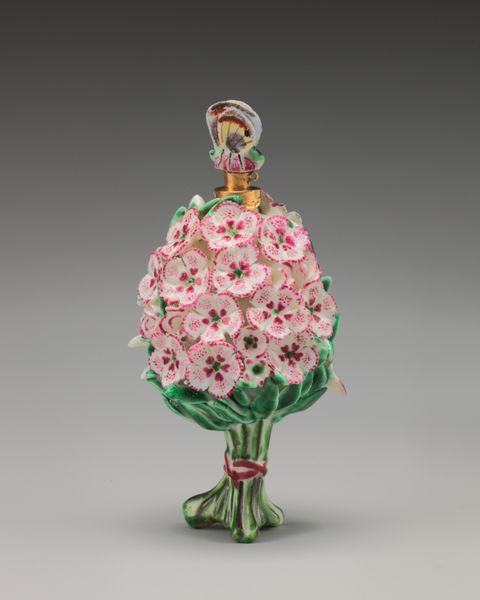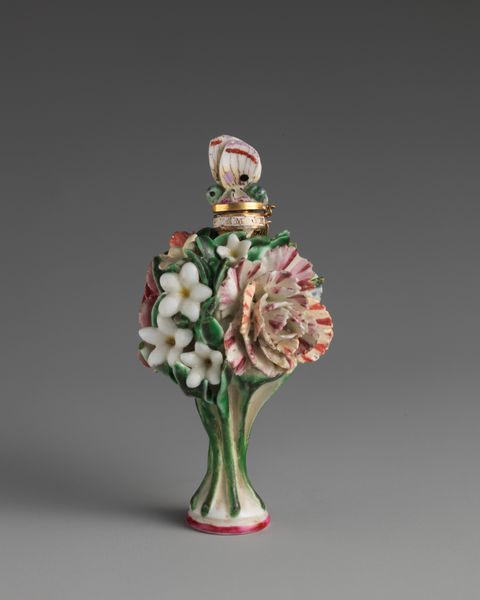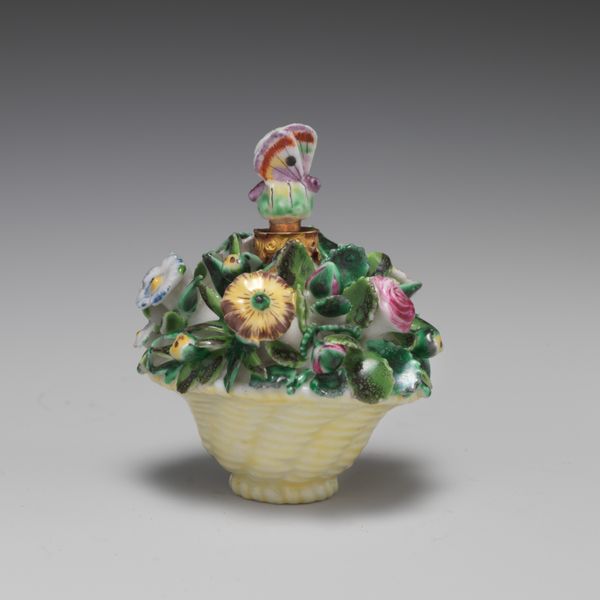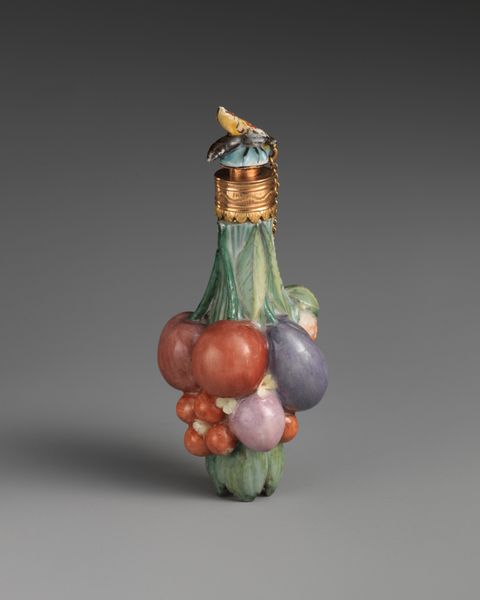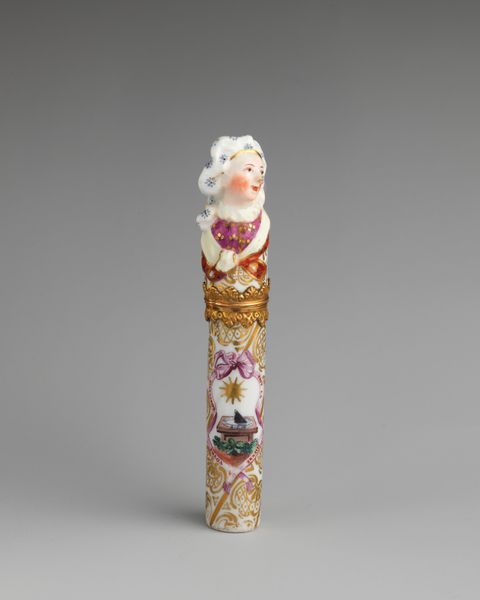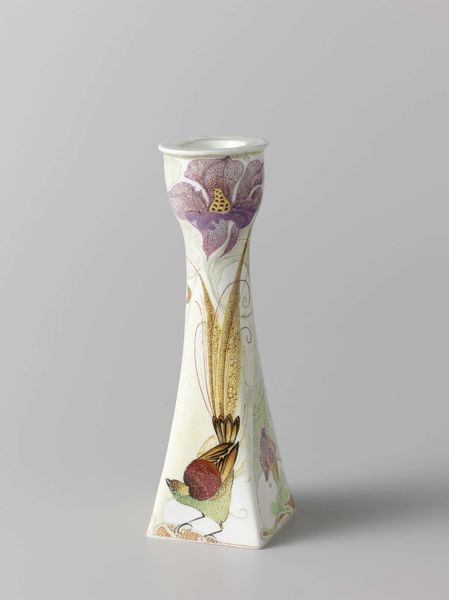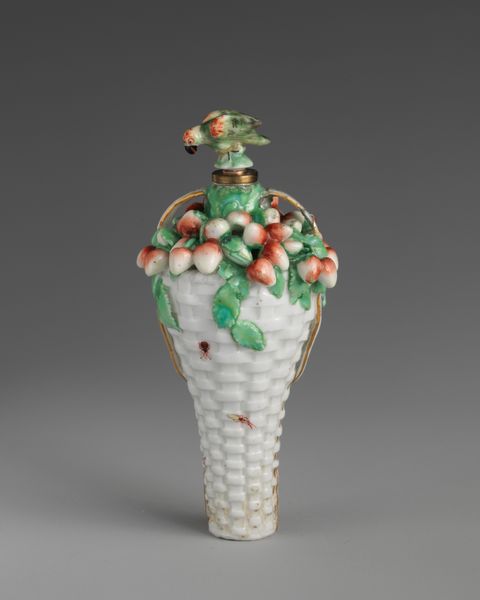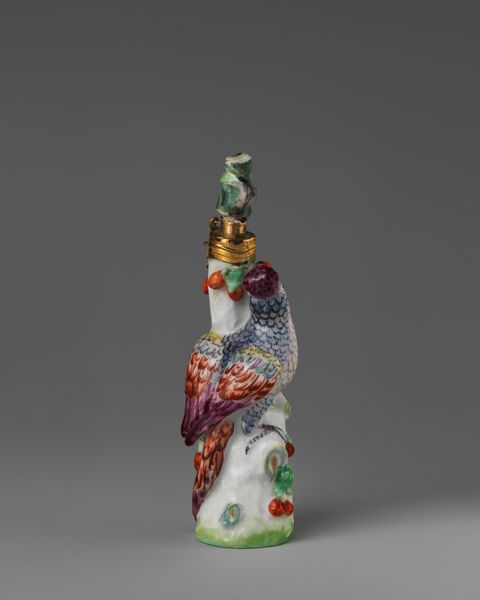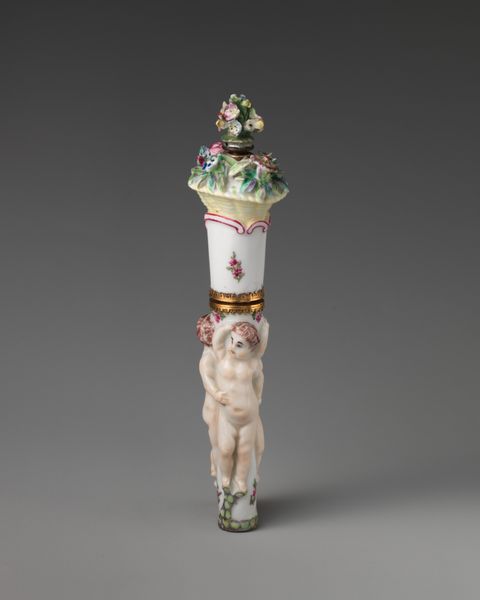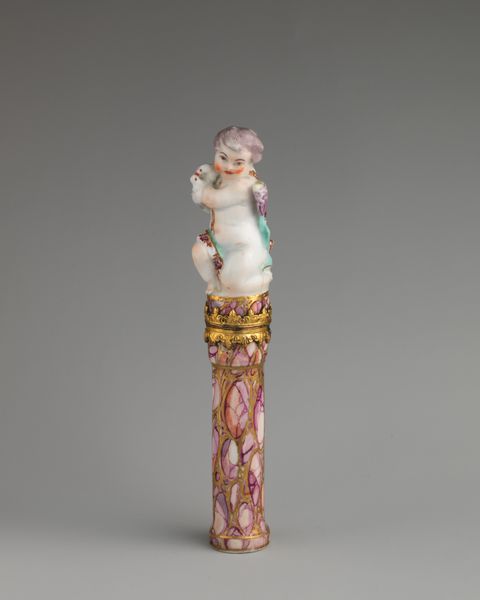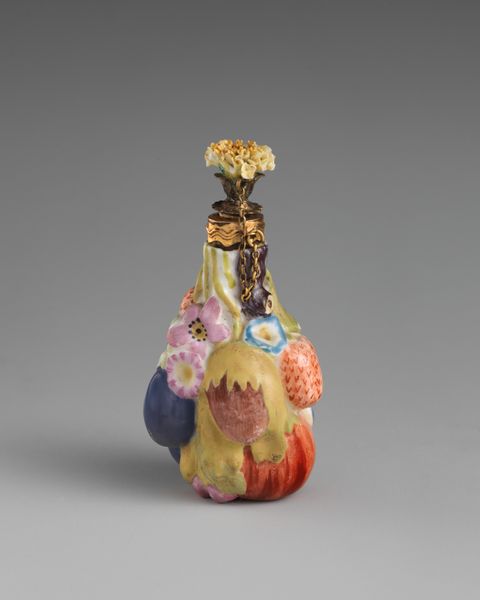
ceramic, porcelain, sculpture
#
ceramic
#
flower
#
porcelain
#
sculpture
#
decorative-art
#
rococo
Dimensions: Overall: 2 3/8 × 3/4 in. (6 × 1.9 cm)
Copyright: Public Domain
This tiny “Nosegay” was made at the Saint James’s Factory in England, sometime in the mid-18th century, from soft-paste porcelain and gilded metal. The porcelain would have been mixed from powdered glass, clay, and bone ash, then shaped in a mold, and decorated with colorful enamels. What makes this piece interesting is how it invites us to think about the social context of ceramics at the time. Porcelain was an expensive material, and objects like these were luxury goods. They reflect a culture of elaborate artifice, produced for the wealthy elite. Yet, factories like Saint James’s were also sites of considerable labor, where workers mass-produced these precious objects, often in very difficult conditions. So next time you encounter a porcelain object, think about the complex story of its making—a story of skilled hands, industrial processes, and the social world to which it belonged. These objects have much more to tell us.
Comments
No comments
Be the first to comment and join the conversation on the ultimate creative platform.
